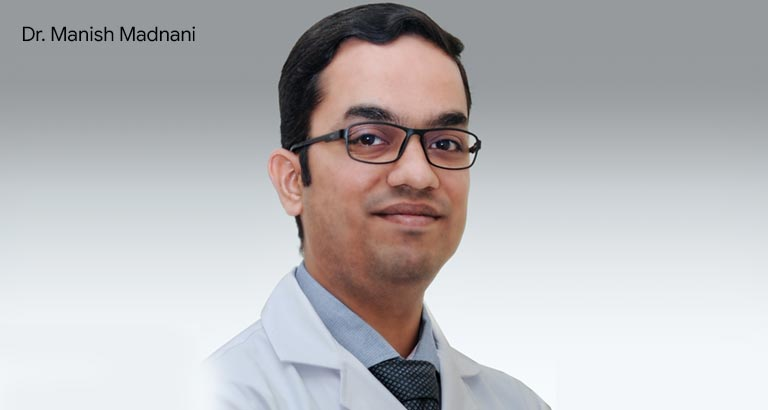
Every year, 28th July is observed as ‘World Hepatitis Day’ to increase people’s awareness about various infective causes of hepatitis. Bahrain Specialist Hospital’s Consultant GI and HPB Surgeon, Dr. Manish Madnani, provided us with some useful information regarding the various types of hepatitis.
Hepatitis simply means inflammation of the liver, which can be caused by various different agents like viruses, alcohol, certain medicines, some congenital (by birth) diseases of metabolism which can hamper the way the body handles copper, iron and other nutrients.
“One factor that has recently come to light is Non Alcoholic Steato Hepatitis (NASH), which is preceded by fatty liver. That is pretty easy to understand, this has some relation with fat deposition and its metabolism in liver. Commonly found in people with diabetes, dyslipidemia (high cholesterol and other lipids in blood), obesity and alcohol intake,” explained Dr. Madnani.
Infective agents, especially viruses which cause hepatitis can present simple viral like illness to acute or chronic liver failure requiring a Liver Transplant, or can be carcinogenic in the long term giving rise to liver cancer. Hepatitis A and E are spread through contaminated water or food and have generally self limiting illness, which may present like fever, jaundice and other viral features, but are harmless in the long run otherwise. “Hepatitis B, C and D (least common), cause chronic illness, are difficult to eradicate and treat, which may cause liver cirrhosis (hardening of liver and causing its function to deteriorate), thus affecting quality of life and survival of patients. They are mainly transferred through contaminated blood or blood products, contaminated injections (not seen after practice of disposable needles), from affected pregnant ladies to newborns and among sexual partners,” he added.
Vaccines are available for Hepatitis A and B widely and for E at some places, while for C and D it is not available. “Even the infectivity of these viruses is very high, that means a very small dose of contaminated blood is needed to render another person infected; fortunately this is less common due to evolving medical practice and medicines,” he explained.
These various types of hepatitis can have three types of outcomes, stated Dr. Madnani. “One is in favor of patients; they remain ill for a few days or weeks and then recover fully without any long term concerns about their liver health. Second, they have chronic ongoing inflammation and the final outcome will be cirrhosis and its related complications which may need long term medical treatment or surgery. Third, worst case scenario, acute failure of liver function and need of ICU treatment and sometimes liver transplant surgery in an emergency setting,” he said.
Hepatology has evolved a lot with other medical sciences in the past century. “Liver surgeries for removal of liver cancers, liver tumor ablation techniques (with help of Radiofrequency, microwaves etcetera) and liver transplant surgeries have been mastered to bring down the risks, morbidities and fatalities of surgery with successful outcomes and longer survival with good quality of life,” he said.
Hepato-pancreato-biliary (HPB) and Liver transplant surgeons are highly skilled professionals dealing with complex liver cases on a routine basis. They form a vital part of multi-disciplinary teams treating complicated patients to give them the best chance of cure. Years of hard training with cultivation to the right attitude brings the best results for their patients.
The liver being the only internal organ to have the capacity to regenerate itself, gives patients the chance of curative surgery even when more than half of the organ is removed. There were days when cancer spread to the liver was considered ominous and death sentence, which doesn’t stand true today. “By incorporating multiple approaches and various treatment options including chemotherapy, TACE (specially delivered chemo to block blood supply of liver tumor), TARE (Specially delivered radioactive material to liver tumor), intra operative imaging (Ultrasound directly on bare liver during operation), staged surgical procedures, PVE (portal vein embolization-cutting off blood supply of affected part to allow growth of normal liver) and other so many techniques, it is possible for Liver surgeons and their teams to treat majority of patients of liver cancers in modern age,” he explained.
“There are examples in our practice, where colon cancer patients with spread to the liver has spent life normally and without disease, even there are cases that are suitable for repeated liver surgeries to bring successful and meaningful results. That is the reason, I strongly suggest a second opinion before accepting liver disease as defeat,” he stressed.
Other surgeons which may help prevent future liver problems are Bariatric Surgeons; they can help lose weight and control fatty liver, so to stop its progress to NASH and ultimately liver failure.
Liver health can be checked by various blood tests, Fibroscan (specialized Liver Ultrasound to check its hardness) and other imaging techniques. “Liver health can be maintained by keeping under ideal body weight, avoiding alcohol and other liver toxic substances (including herbal supplements which may harm liver silently). A moderate amount of coffee intake is suggested to be good for liver health, he explained.
“Wherever in doubt, a multi specialty unit taking care of liver disorders should be an ideal place to seek any authentic advice related to liver problems and to get the best remedy of liver illness. Stay healthy and safe, take a pledge to protect your liver this World Hepatitis Day,” he concluded.



